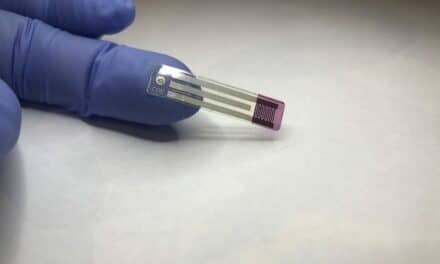Summary: A new survey highlights the significant emotional, social, and financial impacts of a type 1 (T1D) diabetes diagnosis on adults and caregivers, emphasizing the importance of early detection through autoantibody screening.
Takeaways:
- Approximately 64% of adults with T1D experienced a decline in emotional health at diagnosis, with 61% believing early risk awareness could have alleviated their negative emotions.
- Half of adults with T1D spent at least $5,000 on emergency care before or during diagnosis, with nearly 1 in 4 spending at least $10,000.
- Approximately 85% of those with T1D felt their lives could have been different with earlier detection, highlighting the barriers to autoantibody screening and the importance of increasing awareness and access.
New survey research from Beyond Type 1, an organization supporting people with diabetes, entitled “The Cost of Not Knowing,” quantifies the impacts of a type 1 diabetes (T1D) diagnosis among adults over the age of 18 with T1D and caregivers of children under 18 with T1D – with a focus on their emotional, social, and financial health.
Among the most notable takeaways, 68% of adults with type 1 diabetes who were not screened regret not taking an autoantibody test early to understand their risk of developing the disease. This finding is particularly poignant considering nearly 9 in 10 (88%) required emergency care for T1D symptoms before or during their diagnosis. “The Cost of Not Knowing” was commissioned by Sanofi US.
“Working for an organization on the frontlines of the fight for T1D awareness, we hear constantly from adults with T1D and caregivers about the significant, oftentimes intangible toll of an unexpected diagnosis,” says Kristian Hurley, senior vice president of Programs, Advocacy, & Health Equity at Beyond Type 1. “‘The Cost of Not Knowing’ pulls back the curtain on these significant impacts and highlights the value of early detection on a person’s financial, social, and emotional health.”
The Toll of Diagnosis
According to the findings, “not knowing” about the risk of developing type 1 diabetes has its costs – including major emotional, social, and financial burdens:
- Emotional: 64% of adults with T1D say their emotional health declined when they first received their diagnosis; 61% who experienced feelings such as sadness, fear, anger, or uncertainty at the time of their diagnosis say knowing about their risk sooner would have diminished these feelings.
- Social: Nearly 9 in 10 caregivers (87%) gave up some of their interests or future plans when they learned of their loved one’s diagnosis; this is also true for 71% of adults with T1D when they learned of their own diagnosis.
- Financial: Half (50%) of adults with T1D spent at least $5,000 on emergency care for their T1D symptoms before or during their diagnosis, with nearly 1 in 4 (24%) spending at least $10,000.
Further reading: New Biomarkers Found to Predict Kidney Failure in Type 1 Diabetes Patients
The Need for “Knowing”
For both adults with type 1 diabetes and caregivers, early detection has a clear impact, particularly on how they live their life. Notably, 79% of adults with T1D and 83% of caregivers changed how they lived their life when they first learned of their/their loved one’s T1D diagnosis because they felt overwhelmed and underprepared. Had they screened and known about their diagnosis sooner, however, 85% of those with T1D say their life may have been different, with more than 1 in 3 (34%) stating they may have felt more in control of their health, 28% stating they may have had more time to prepare, and 20% stating they may have avoided the stress that comes with “not knowing.”
Today, over 1.45 million people in the U.S. live with type 1 diabetes , an autoimmune disease where the immune system attacks insulin-producing cells in the pancreas. T1D can happen to anyone at any age, and ~90% of those diagnosed have no family history. For many individuals and their families, however, a T1D diagnosis comes as a complete shock – with many learning of their condition after experiencing severe symptoms in an emergency setting. While screening for T1D autoantibodies can indicate the risk of developing the condition before symptoms occur, the research confirmed that screening remains an uncommon practice, underscoring the urgency surrounding this new research and the importance of early screening.
Perceived Barriers Preventing Access
Despite the critical importance of early detection, autoantibody screening remains uncommon, largely due to awareness and perceived access barriers. Just consider that only 14% of adults with type 1 diabetes say they were screened with an autoantibody test prior to their diagnosis – while 72% of those who did not screen were completely unaware that autoantibody screening was available.
Of those who were aware, 40% say that their insurance wouldn’t cover the cost and 28% say their healthcare provider did not offer it. Even still, 92% of adults with T1D and 96% of caregivers say they would recommend friends and family members get an early autoantibody test for T1D to understand their risk of developing the disease.
Photo: Dreamstime



